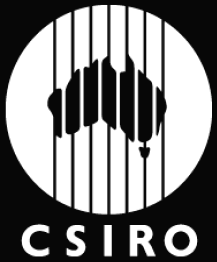 CSIRO Publishes Revised but Still Ambiguous Policy on Public Comment by Staff.
(July 14, 2006)
CSIRO Publishes Revised but Still Ambiguous Policy on Public Comment by Staff.
(July 14, 2006)|
|
|
|
|
|
|
News & Views item - July 2006 |
![]()
 CSIRO Publishes Revised but Still Ambiguous Policy on Public Comment by Staff.
(July 14, 2006)
CSIRO Publishes Revised but Still Ambiguous Policy on Public Comment by Staff.
(July 14, 2006)
CSIRO, following its internal review, which Chief Executive Geoff Garrett requested because of "significant concerns alleging that CSIRO was gagging its scientists, and that the previous policy lacked clarity" has released a revised Policy on Public Comment by CSIRO Staff which "Supersedes Policy on Public Comment by CSIRO Staff Members 2004/06 - July 2004.
Dr Garrett said that the review team of senior scientists, chaired by Dr Tony Haymet, consulted widely throughout the organisation, holding 10 separate consultation sessions with staff all over Australia and the review team found that the previous policy had sometimes discouraged staff from speaking about their science in public.
According to Dr Garrett, "As a result of the Review we have totally rewritten our policy. We have taken out the word 'permission'. We encourage our scientists to communicate the outcomes and implications of their scientific work and, where relevant, suggest policy options and scenarios stemming from their scientific findings.
"We also ask them to avoid making direct comment for or against government or opposition policy, from State or Federal governments. Our job is to inform policy, not to prescribe it, and to be an authoritative and honest broker, rather than an advocate."
The juxtaposition of Dr Garrett's exhortation "where relevant [to] suggest policy options and scenarios stemming from their scientific findings," to the admonition "to avoid making direct comment for or against government or opposition policy, from State or Federal governments," must leave staff less than assured. Of course he is quoted as asking them rather than directing them but the quote comes from a media release not the policy document.
The request, rather smacks of a royal invitation.
When you read the specific policy statements below, you can judge for yourself.
The president of the CSIRO Staff Association, Dr Michael Borgas, says while the changes are a good first step, there is still more work to be done. He told the ABC, "Those are behavioural changes that are required and they're not going to happen just because we've put some new words down on a document. That's going to require hard work, a lot of involvement with staff at all levels and a cultural change."
Dr Borgas's points go the the heart of the issues of CSIRO public policy and its administrators and the federal government being able to shape public utterances by CSIRO staff through more or less subtle intimidation.
The revised Policy on Public Comment by CSIRO Staff. consists of six policy statements which are then amplified for clarification.
Policy statement -1
Scientists are CSIRO’s frontline communicators. They are encouraged to communicate the outcomes and implications of their scientific work and, where relevant, policy options and scenarios stemming from their scientific findings.
Policy statement - 2
Prior to contributing to public debate or to government inquiries CSIRO staff should consult widely within the Organisation, and where diversity of scientific views exists make reference to the range of scientific perspectives held within CSIRO. Staff will comply with CSIRO’s formal procedures and protocols for co-ordination of submissions to government and other inquiries, and, where they exist, associated obligations for confidentiality.
Policy statement - 3
CSIRO staff should not advocate, defend or publicly canvass the merits of government or opposition policies (including policies of previous Commonwealth governments, or State or local or foreign governments).
Policy statement - 4
If a staff member is commenting in a private capacity, he or she should state clearly that it is a personal opinion rather than an official view of CSIRO.
Policy statement - 5
If a staff member intends to comment publicly on behalf of CSIRO, he or she will advise line managers and communication officers. In some circumstances (for example, requests from the media) timeliness of response is important, and in such cases this advice can be provided immediately after comment is made.
Policy statement - 6
Comments to the media about the Organisation’s overall directions, operation, strategies and financial position should only be made by appropriately delegated staff.
Two particular statements made as clarifications cause some consternation. The staff are told:
"CSIRO staff have the same right as all Australian citizens to speak as an individual rather than as a representative of their employer." But they are reminded that, "All staff, especially senior scientists and managers, should be mindful of the reality of modern media, such that they are likely to be identified as being employed by CSIRO whether they wish to be or not."
Is that a veiled threat or not?
And if Policy Statement -2 doesn't ring alarm bells it ought. Just what will a member of CSIRO staff be allowed to say to a Senate Estimates committee or a public enquiry into water management, the utilisation of sources of renewable energy, the potential dangers of CO2 sequestration, or the efficacy of various avenues of stem cell research?